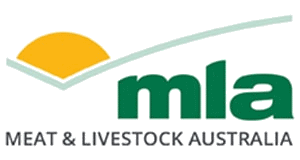Cattle market
The cattle market was generally positive this week despite a 14¢ decline in heavy steer prices. Yardings eased once again, totalling 48,488 head.
The National Young Cattle Indicator lifted 14¢ to 357¢/kg liveweight (lwt). This is the second-highest price this year, behind the peak in February. A large portion of supply was coming through NSW online sales, which made up 23% of the indicator throughput. NSW online sales took over Roma and Queensland online sales, reflecting a slowdown in Queensland supply (though recent rain across the state lifted restocker enthusiasm).
The Heavy Steer Indicator fell back 14¢ to 345¢/kg lwt, opening the gap between processor-ready steers, trade feeders and restockers. The restocker market was driven by Queensland regarding throughput. Rain across NSW led to stronger restocker steer prices, particularly in Wagga Wagga. The Restocker Steer Indicator lifted 8¢ to 375¢, while the Heifer Indicator was the week’s highest performer, lifting 12¢ to 298¢/kg lwt.
Sheep market
The sheep market was poorer this week, as yardings eased 15% to 246,111 head, with an 11% dip in sheep (78,071) and a 16% dip in lamb yardings (168,040).
The Mutton Indicator eased 11¢ to 362¢/kg carcase weight (cwt), however was the least impacted by the decline in yardings. The declines were largely due to mixed quality of mutton offered to larger buyer markers, especially across NSW, softening $7–$21 in a usually strong Wagga market, and $10–$20 in Bendigo.
The Heavy Lamb Indicator was the best performer – while also being less affected by hits to yardings. The indicator lifted 7¢ to 819¢/kg cwt. Exporters were present across major markets and quality was the driver across NSW – lambs above 30kg drove the excitement, with good lines of grain-assisted stock hitting markets, some tipping $300/head.
Slaughter
Week ending 16 August 2024
Cattle slaughter eased slightly on the previous week, easing by 4,000 head (3%) to 134,023 processed over the week, remaining above the weekly average for 2024.
The most significant change across states was in WA, with slaughter lifting 33% to 3,539 head, their highest since March of this year. Slaughter also lifted 6% in Tasmania to 4,448 and 3% in NSW to 34,993 head. Eases were seen in all other states, starting at Victoria by 1% to 21,959 after the historic highs of previous weeks. SA slaughter dropped by 2% to 3,280, and Queensland (which drove the national dip) falling by 8% to 65,864, their lowest throughput since May.
Lamb slaughter eased 4% to 413,152 processed over the week. Despite lifts in NSW (1% to total 117,392) and Queensland (4% lift totalling 1,477), all other states experienced declines. Sheep slaughter lifted 6% to 154,689 head processed over the week. This was buoyed by a 16% lift in NSW to 63,578. Despite the lift, it is still below the weekly average for 2024.
Combined slaughter remained flat, falling by only 1% to 567,841. Tasmania and SA each fell 10% and 20% respectively to 8,283 and 22,044 mainly due to maintenance closures, while Victoria eased 4% to 269,824. Lifts between 1%–6% were seen across other states; WA (85,228), Queensland (1,492), and NSW (180,970).
MLA

See also:
Australian Red Meat Exports Boom in UK since Free Trade Agreement
